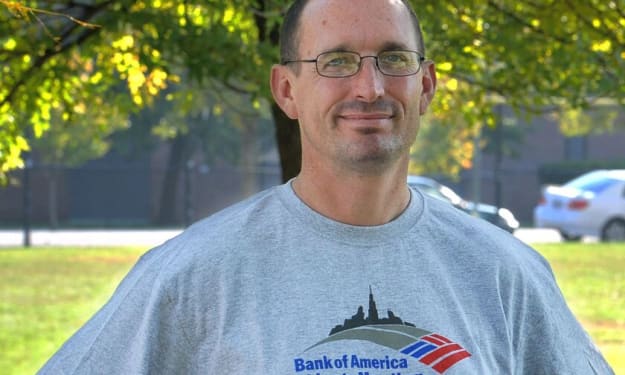
In the documentary Tough Guys 2, Katz examines the socialization of young men, and addresses the topic of violence and how violence isn't so much of a "learned behavior" but it is actually a taught behavior:
We often talk about violence being a learned behavior, but it's more to the point to say that it's a taught behavior. And by shifting the focus from "learned" to "taught," we shift the onus of responsibility onto those of us who are teaching our sons what it means to be a man.
Katz points out that masculinity is made, not given. The link between manhood and violence has been cultivated over time in American popular culture, from Hollywood Westerns to gangster films to the full range of today’s hyper-violent American movies, including the popular DC and Marvel Comic film adaptations.
Culture plays a huge role in teaching young men and boys what it means to be a real man. Katz states:
The fact is that when we talk about a “culture of violence” in America, we’re almost always talking about a culture of violent masculinity... William Pollack introduced the idea of a "boy code," in which boys are taught from a very early age to act tough and not show their feelings.
A boy code is taught at a young age about how boys are put into a box and they can't show emotion or weakness, they can't back down from anything. They are also taught at the same time that being tough and controlling are how you can be a real man, it's a breeding ground for violence.
Katz addresses the issues of homophobia and sexism in this documentary when he states:
Qualities like compassion, caring, empathy, intellectual curiosity, fear, vulnerability, [and] even love – basic human qualities that boys have inside them every bit as much as girls do – get methodically driven out of them by a sexist and homophobic culture that labels these things "unmanly," "feminine," "womanly," and "gay," and teaches boys to avoid them at all costs. And, most importantly, they’re taught that real men turn to violence not as a last resort, but as the go-to method of resolving disputes – and also as the primary means of winning respect and establishing masculine credibility.
The culture teaches boys and men that showing emotion, seeming smart, bookish, or sensitive, and being thoughtful and self-reflective are signs of weakness, and at the same time, physical toughness, domination, and control are signs of being a real man.
American movies and television shows have also cultivated the idea that being a real man is about sexual conquest and dominating and controlling women. Beyond movies, these ideas and ideals are reproduced in porn culture, sports culture, political culture, and other cultural arenas that glorify male toughness and control.
In my own experience, I have noticed that many RPGs establish masculine characters based on America’s cultural norms. I have played many of them, like Diablo and Assassin's Creed. In addition, the superhero characters in the DC and Marvel comics depict the male characters with this same masculine stereotype. Katz asserts that media are the primary narrative and pedagogical forces of our time and that media images of manhood, therefore, play a pivotal role in making, shaping, and privileging certain cultural and personal attitudes about manhood.
Class and economic status are factors that establish respect. Men who are considered in a higher class or have enviable economic status are considered “real men”. Men who have the means to get what they want or need don’t need to resort to violence because “money talks”. However, those individuals who have less may find themselves using violence to obtain what they need or to establish dominance.
References
Tough Guise 2 Discussion Guide - Media Education Foundation. https://www.mediaed.org/discussion-guides/Tough-Guise-2-Discussion-Guide.pdf.
Tough Guise 2 [Official Transcript]. https://www.mediaed.org/transcripts/Tough-Guise-2-Transcript.pdf.
About the Creator
Rebecca A Hyde Gonzales
I started writing when I was about eight years old. I love to read and I also love to create. As a writer and an artist, I want to share the things that I have learned and experienced. Genres: Fiction, non-fiction, poetry, and history.
Enjoyed the story? Support the Creator.
Subscribe for free to receive all their stories in your feed. You could also pledge your support or give them a one-off tip, letting them know you appreciate their work.






Comments (1)
Thanks for sharing!